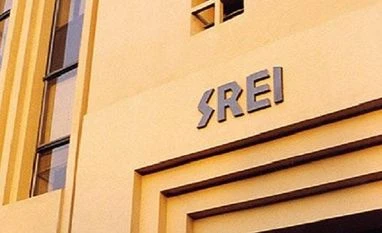Trinity Alternative Investment Managers, majority-owned by Srei Infra Finance which is undergoing RBI-mandated insolvency proceedings, has said no illicit transactions have been done with any Srei Group entities.
Trinity also said that none of the extant rules define related-party transactions when it comes to Alternative Investment Funds (AIFs) and that Srei group, despite owning 51 per cent stake, does not have a board representation since the entity is only an asset manager.
Last week, reports said the RBI-appointed administrator Rajneesh Sharma has moved the Kolkata bench of the National Company Law Tribunal (NCLT) seeking to include around Rs 8,400 crore loans that Srei group entities have extended to 20 of the 50 investee companies of Trinity, under the ongoing insolvency proceedings.
The administrator has also sought to stall a planned rights issue by Trinity as Srei being under insolvency proceedings cannot participate as it will lead to the company becoming a minority shareholder.
On October 4, 2021, the Reserve Bank of India (RBI) superseded the boards of the group firms -- Srei Infra Finance and Srei Equipment Finance. Later, the companies were referred to the NCLT for insolvency proceedings.
The Srei group launched Trinity as a Sebi-registered AIF in 2005 and in mid-2020, sold 49 per cent stake to the Singaporean fund Payaash Capital. As an asset manager, Trinity manages around Rs 1,475 crore, which is invested between 50-odd companies.
Payaash Capital is represented at Trinity by Uttam Prakash Agarwal who is a past President of the ICAI. He was also on the board of Yes Bank and had also led a detailed audit into the scam-hit Satyam Computer in 2009.
Also Read
Speaking to PTI, Agarwal denied any wrong doings as it was being made out and asserted that there have been no illicit transactions between the fund and Srei Group entities. "I've asked Trinity and the board to share all information being sought by the administrator," he said.
Stating that there is absolutely no related-party transactions between Srei group entities and Trinity and its investee firms, Agarwal said one of the key conditions that Payaash Capital insisted was to have an independent board. This was the reason why Srei group chose to stay out of the board despite being the majority stakeholder, he added.
"None of the extant statutory provisions, be it the Companies Act or the Income Tax Act, or Sebi rules define what is a related-party transaction in an AIF. So such charges are nothing but absurd.
"Moreover, after the administrator sought details, we (Payaash Capital) have appointed an auditor to study the investment position," he said, adding that accusing Trinity or its shareholder of illicit monetary transaction between investee firms and promoters is like accusing a bank-led mutual fund of acting in concert with the bank to extend loans to companies it has exposure to.
On the rights issue, Agarwal said the plan has already been shelved as shareholders did not wanted it and NCLT admitting the petition does not make any sense.
Since its inception in 2005, Trinity has invested around Rs 8,000 crore and have returned over Rs 5,500 crore to its investors.
Currently, it manages 10 funds having a total of Rs 1,475 crore equity exposure to about 50 entities holding assets like toll roads, real estate, power distribution and generation and water supply. Of the current corpus, Rs 100 crore is contributed by Srei, Shilpa Modi, who heads Trinity as a Senior Vice President said.
The administrator has alleged that Srei entities have lent Rs 8,400 crore to these companies and in some of them, Srei promoter entities have economic interest.
Besides, some of the funds under Trinity raised money by issuing units to Srei companies. This inter-linked transactions makes Trinity an important piece in the resolution of Srei companies, according to the administrator.
Administrator Rajneesh Sharma could not be contacted for comments.
Modi told PTI that Srei group brought in Payaash Capital to expand the operations and raise overseas capital with investment in infra/stressed assets and also as part of its bid to exit the fund.
When asked why Srei is not on the board, she said it was to ensure transparency and global best practices and to make it run independently. This was also done to avoid possible conflict of interest with investors. Accordingly, none of the investee companies have connections with either Trinity or Srei in any manner, she claimed.
(Only the headline and picture of this report may have been reworked by the Business Standard staff; the rest of the content is auto-generated from a syndicated feed.)
)